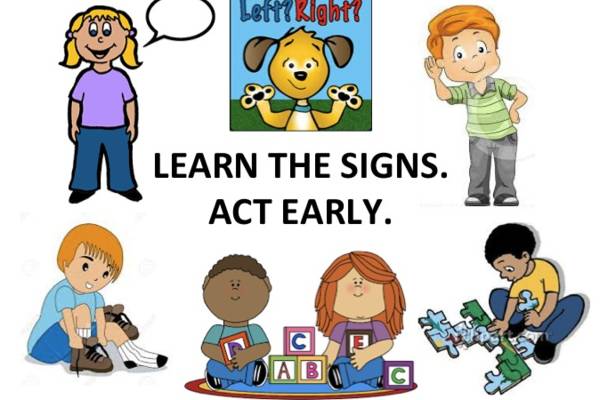
How can parents identify special needs in their child?
8 Dec 2015 | 4 min Read
Malika Mehta
Author | 2 Articles
Officially, a child can only be diagnosed with a Specific Learning Disability after the age of about seven or eight (i.e., when s/he is in the second or third grade). Why then, do paediatricians, pre-school teachers and/or other professionals alert parents to specific behaviours and/or learning difficulties even before children have entered elementary school?!?
This is mainly because research in the field of special education across the globe unanimously advocates for the need and benefits of early intervention. If you LEARN TO RECOGNISE THE SIGNS AND ACT EARLY, then you are able to help your child learn and develop more effectively and happily.
All children are different, as a consequence of which, their learning patterns, methods and the pace at which they achieve their developmental milestones also, naturally, varies. Additionally, the pace at which the same child develops in several areas is also likely to be different. For instance, your child may pick up languages quicker than his or her peers, but may not like colouring as much, an indicator of possible difficulties in the area of fine motor skills. Before age five, many of these variations are considered to be ‘part of growing up’. However, if significant delays in the development of certain basic skills persist over a period of time, despite your efforts as a parent to help your child, then this can be a warning sign of bigger challenges to come, particularly so if these difficulties are not addressed appropriately and sooner rather than later.
Below is a list of questions that you can ask yourself as a parent to identify some of the early signs that could indicate that your child MAY be at risk of developing a Specific Learning Disability in one of the many achievement areas (e.g., Oral Language, Reading, Writing and/or Mathematics) in the future.
Please answer yes to any of these, if and only if, your child:
1. Did my child start talking more than four to six months later than other children his or her age?
2. Does my child have difficulties pronouncing words?
3. Does my child take longer to learn new words and/or find and use the right word?
4. Does my child take time learning nursery rhymes or have difficulties learning rhyming words?
5. Does/did my child have trouble learning the days of the week, colours, shapes, numbers and the alphabet?
6. Does my child have difficulties following instructions or performing daily routines?
7. Is my child restless and fidgety? Does s/he have difficulties staying on task and/or completing it?
8. Does my child show a limited interest in books?
9. Does my child enjoy being read to, but dislike being asked questions after?
10. Does/did my child confuse left-right, before-after, yesterday-tomorrow?
11. Does/did my child fumble when buttoning/unbuttoning his or her clothes, tying his or her shoe laces or using a zipper?
12. Does/did my child have difficulties putting together a puzzle, colouring within the lines, using scissors or catching or hiting a ball?
13. Is my child clumsy and prone to minor accidents? Is s/he awkward when running, jumping or climbing?
14. Does my child have difficulties learning the connection between letters and sounds or consistently reverse letters such as b/d when reading or writing?
If you have answered yes to a couple of these questions, there is nothing to be concerned about, as everybody (including you and I), faces some of these challenges to some degree!
If, however, you have answered yes to more than four or five of these questions you may want to explore this further, sooner rather than later. Do not panic or begin to over analyze every thing your chid says or does. As a parent, you know your child the best. So keep an open mind; if you feel that these challenges are beginning to, or are already impacting your child’s learning and development significantly, then you lose nothing by seeking the advice of your Paediatrician or another more specialized professional, such as a Developmental Paediatrician.
Finding a good professional and getting an appointment can be a challenge in our city challenge. Two places that I recommend in addition to the contacts listed under the Special Needs Section on BabyChakra.
1. Ummeed Child Development Center (Lower Parel)
2.IKA Children’s Center (Nariman Point)
Apart from seeking professional help, you as a parent can also do a lot to help your child develop their overall language, reading and writing skills. More on that to come in my next article!
Also read about The Basics Of Learning Disabilities.
A


Suggestions offered by doctors on BabyChakra are of advisory nature i.e., for educational and informational purposes only. Content posted on, created for, or compiled by BabyChakra is not intended or designed to replace your doctor's independent judgment about any symptom, condition, or the appropriateness or risks of a procedure or treatment for a given person.
